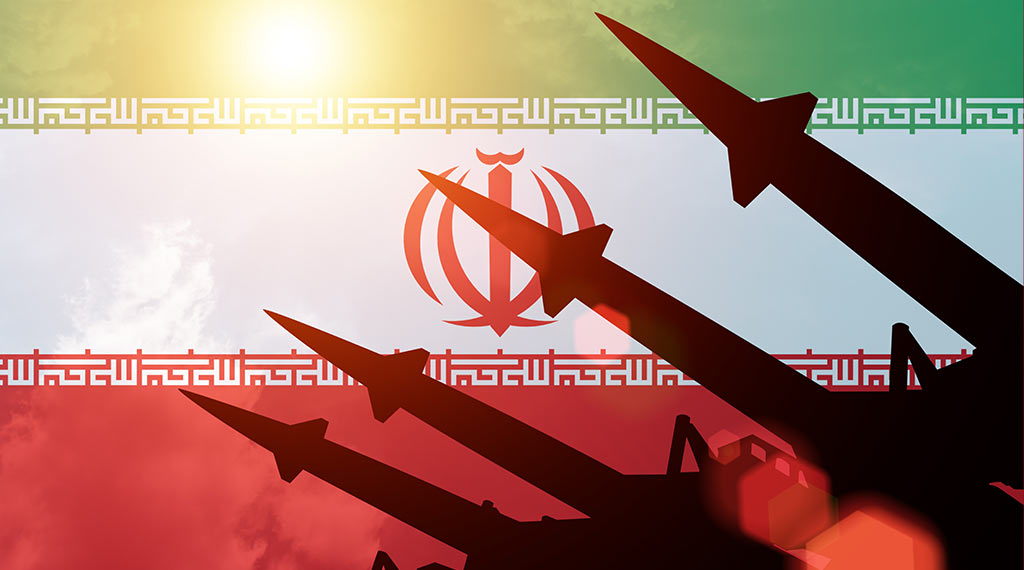As Iran’s nuclear weapons program surges, Biden discusses new appeasement

An International Atomic Energy Agency (IAEA) report issued this week indicates a huge surge in Iran’s nuclear weapons program and new efforts to block the IAEA from monitoring its nuclear activities.
But despite these developments, the Biden administration is planning to appease Iran with a “temporary” agreement that will give Tehran sanctions relief if it freezes its nuclear program at its current state while negotiations continue the get the Obama-era Iran nuclear deal (the JCPOA) back on track.
According to the IAEA report, Iran now has 2,489 kg of reactor-grade enriched uranium (3 to 5% uranium-235); 113.8 kg of U-235 enriched to 20%, and 17.7 kg enriched to 60%.
This is enough enriched uranium to fuel two and a half nuclear weapons if further enriched to weapons-grade. Iran is rapidly developing its capability to make weapons-grade fuel by enriching to the 20 and 60% levels.
The Institute for Science and International Security said in a September 2021 report that Iran can now produce enough weapons-grade nuclear fuel for a single bomb in “as short as one month.” A second weapon’s worth of fuel, it says, could be produced in less than three months, and a third in less than five.
Just as alarming, the IAEA reported that Iran has resumed production of advanced centrifuge parts at its Karaj facility and barred access to IAEA inspectors.
This is enabling Iran to significantly increase its capability to produce nuclear fuel, possibly at new covert sites.
Iran also is refusing to cooperate with IAEA inspection of three sites where man-made nuclear particles were found indicating undeclared nuclear weapons-related activities.
Iran’s cooperation with the IAEA grew worse in other ways since Joe Biden became president. The new IAEA report cites physical harassment and intimidation of IAEA inspectors trying to access Iranian nuclear facilities.
Since February, Iran has barred the IAEA from monitoring uranium mines, a yellowcake facility and centrifuge assembly plants.
Iran answered growing criticism of its surging nuclear program by demanding that the United States drop all sanctions – including terrorism and human rights sanctions – before it will halt its recent nuclear activities and rejoin the JCPOA.
There is a word for this: blackmail.
The Biden administration reportedly is preparing to give in to this blackmail.
The administration is proposing Iran freeze some of its nuclear weapons-related activities (such as enriching to 60%) in exchange for releasing some frozen Iranian funds or providing sanctions waivers on humanitarian goods.
National Security Adviser Jake Sullivan, one of the architects of the JCPOA, reportedly is behind a possible temporary nuclear deal with Iran. According to Axios, Sullivan’s Israeli counterpart Eyal Hulata rejected this idea when Sullivan recently raised it with him, arguing that any interim deal would become a permanent agreement that lets Iran maintain its nuclear infrastructure and uranium stockpile.
Instead, Hulata urged that Iran be censured at an IAEA meeting in Vienna next week for its refusal to cooperate with IAEA inspectors and recent dangerous advances in its nuclear program.
The Biden administration has already lifted some sanctions on Iran this year, including – incredibly – sanctions on two Iranian missile producers in October.
There is a long history of Iran and North Korea surging their nuclear programs to extract concessions from the United States and its allies to “halt” these programs.
This cycle repeats itself when these states later resume their nuclear activities to win even more concessions.
That’s what happened with the JCPOA during the Obama administration. Iran did not have enough enriched uranium to fuel even one nuclear weapon when George W. Bush left office in January 2009.
However, by dramatically increasing uranium enrichment after Barack Obama became president, Iran had enough enriched uranium by the time the JCPOA was agreed to in July 2015 to fuel 10 nuclear weapons.
This helped Iran prevail in talks with then-Secretary of State John Kerry that produced the deeply flawed JCPOA. Under this agreement, Iran agreed to halt nuclear weapons-related activities but was allowed to continue enriching uranium.
The deal had weak verification and a short duration. In 2018, Israeli intelligence stole a huge number of Iranian documents that proved massive cheating by Iran on this agreement.
The Clinton and George W. Bush administrations were similarly duped in nuclear agreements they struck with North Korea that it failed to honor.
My guess is that Biden officials are considering a temporary deal to appease Iran because they are desperate to achieve something they can portray as a diplomatic success and because they are still resentful that President Trump withdrew from the JCPOA.
Such a course of action would be extraordinarily irresponsible since there is every reason to believe Iran will simply pocket any U.S. concession and continue its nuclear weapons program.
Moreover, if the Biden administration proceeds with its proposal to give sanctions relief to Iran, it would not just be more confirmation of Joe Biden’s weakness, it also would telegraph to America’s enemies and adversaries that blackmailing the United States works.
It therefore is urgent that members of Congress on a bipartisan basis speak out against any attempt by the Biden administration to give in to Iran’s nuclear blackmail. Instead, Iran needs to be held accountable for its increased nuclear weapons-related activities and refusal to cooperate with IAEA inspectors.
Congress and the American people must tell President Biden that this is a time to punish, and not reward Iran for its stepped-up efforts to construct nuclear weapons.
- The Iran nuclear negotiations: Why the humpty dumpty JCPOA should not be renewed - December 7, 2021
- Time to end diplomacy with Iran and admit Trump was right - December 3, 2021
- The US should walk out of the Iran nuclear talks - November 30, 2021
